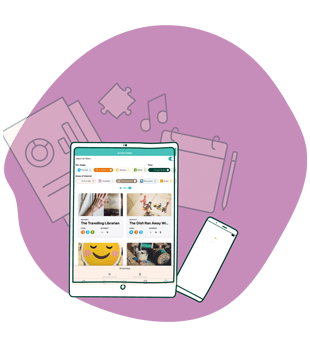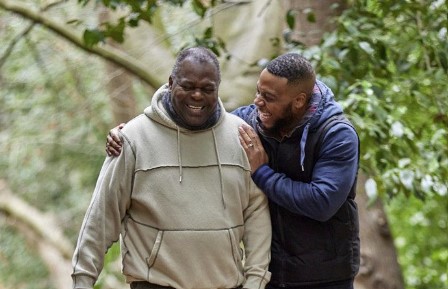Meet Dr Jennifer Bute
Dr Jennifer Bute was a practicing GP but retired when she was diagnosed with early onset Alzheimer's. Since then it has become her passion to try and help people understand Alzheimer's, she has now written a book about the condition and hosted numerous talks.
Watch her story as she explains how she was diagnosed with dementia and how she decided to not hide behind the diagnosis but to use her experience to improve other peoples' lives. Dr Jennifer Bute also shares the importance of connection, purpose and routine, as well as some tips on how people can communicate with their loved ones living with dementia. The main tip being, to treat the person like you always did!
Dr Jennifer Bute videos
Finding Achievement
"I find achievement through making someone smile or making them feel happier or to show that they still add value. It is very important for families to show their loved ones with dementia that they still add value!"
Finding Calm
"Music is very important to me, it can calm people at meal times and when they are reluctant to eat. It is wonderful in all situations. I also love the garden and trees which I find very calming."
Keeping Independent
"Technology can be wonderful to help you to continue, do not allow yourself to give up on tasks and ask people to help you not to do it for you."
Finding Joy
"You can have more joy, it is possible! I am even happier now because I have a purpose in helping people to understand more about dementia and enabling other people to find hope."
Keep Learning
"When I was first diagnosed I thought that i would have to give up everything but you can relearn the things that you have forgotten whether that is a language or how to do a puzzle, it will just take practice."
Keeping a Sense of Identity
"I continue to do the things that I enjoy like teaching, learning and sharing my experience with others."
Keeping Relationships
"A lack of understanding can hurt relationships, so it is important to help them to seek education. We all just want to be treated the same fundamentally because we are still the same."
“It is possible to be happier after diagnosis, all you need to do is find purpose and have a little hope.”
Dr Jennifer Bute Tips
Independence:
Asking people for help is important to maintain your independence but do not let people do things for you, they should do it with you.
Joy:
Having a purpose and some hope will help to provide you joy!
Calm:
Music can help people to eat, to feel better about showering and much more it has a very calming effect on people.
Relationships:
It is important to speak to your friends and family about dementia, so that they can understand how to treat you. Many people feel that their loved one will be a different person from diagnosis, but that is not true.
Achievement:
Helping people or finding something that brings you value can really help to improve your wellbeing. It is important for the families of the people living with dementia to make sure that they know that their family members are valued.
Learning:
It is possible to relearn things that you have forgotten it will take time and some effort, but it is possible. The brain has amazing neuron plasticity which helps us to relearn.
Identity:
Continue to do something that is important to you or what you used to do before you were diagnosed, if it is safe to do so. If you enjoyed baking have a look at what easy no oven recipes there might be.
Active:
It can be easy to be lazy and watch television but keep moving! It will help to improve your life.




